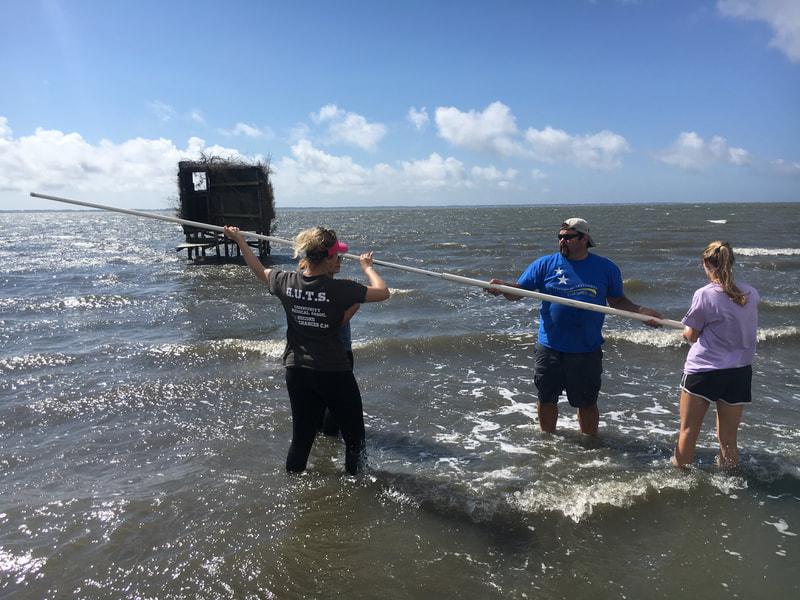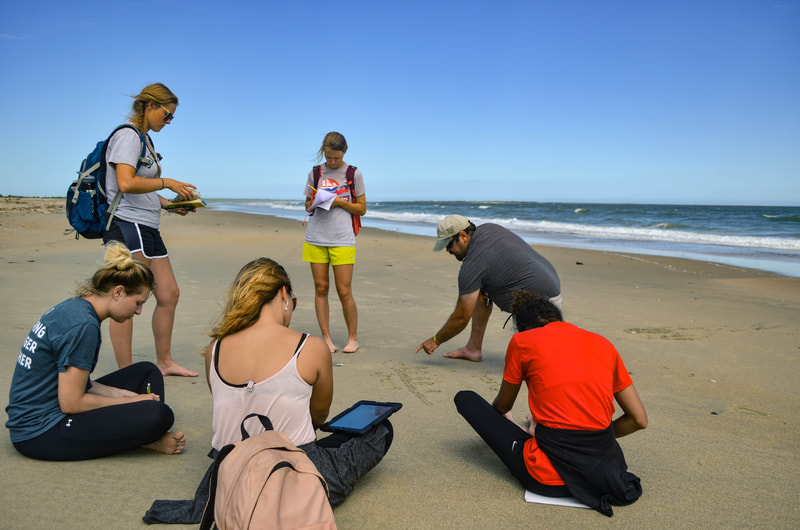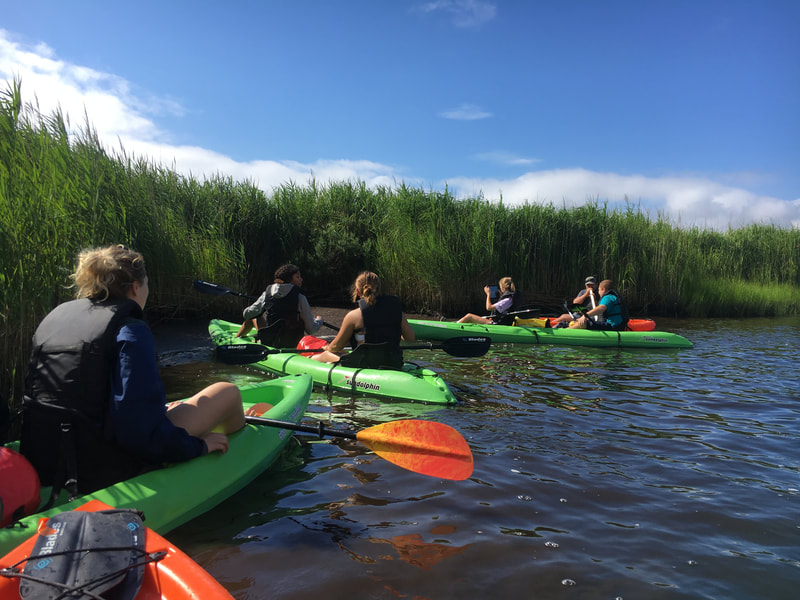COASTAL HAZARDS AND SUSTAINABILITY
DR. SEAN CORNELL - SHIPPENSBURG UNIVERSITY
Important: Coastal Hazards and Sustainability will be taught online for the first three weeks - May 19 - June 7
The field and lab components will be taught at CBFS the first week of session 2 - June 9 - June 14
The field and lab components will be taught at CBFS the first week of session 2 - June 9 - June 14
Course Description:
The course provides a global perspective of the geology and geography of coastal landscapes, the processes responsible for their formation, diversity, and change over time. Content includes a review of human impacts and responses (i.e. engineering, mitigation, adaptation, emergency response, land use planning, etc.) to coastal hazards affecting billions of people living in coastal zones. Historic and late-breaking case studies will be integrated, especially studies of the Eastern U.S. Students will collect and analyze real data to apply critical thinking and problem-solving skills to real-world issues affecting human populations today and in the future. Students will consider options to improve resiliency and sustainability in these dynamic environments.
Marketable Skills Gained from this Course:
General Description of Field Activities:
Students will visit sites including estuaries, saltmarshes, seagrass beds, tidal creeks, bays, coves, barrier islands, and intertidal zones to examine their geography, human impacts, and environmental responses using a variety of data collection techniques.
Approximate Amount of Course Time in Field:
50%
Prerequisites:
No prerequisites, this is a general education class (Science with lab).
Required Textbook or Supplies:
No Textbook Required: students will be utilizing web-based resources (D2L.ship.edu) and a course website that will contain all required readings and assignments.
STUDENTS MUST HAVE:
Number of Students:
10-14
2024 Chincoteague Bay Field Station Fee*:
1 week course; housing and meals included, traditional dorms required for 1 week hybrid course
Hybrid Traditional; $719
Fees are subject to change at the discretion of the board of directors
*Does not include tuition and university fees. For specific policy on CBFS fees, click HERE.
The course provides a global perspective of the geology and geography of coastal landscapes, the processes responsible for their formation, diversity, and change over time. Content includes a review of human impacts and responses (i.e. engineering, mitigation, adaptation, emergency response, land use planning, etc.) to coastal hazards affecting billions of people living in coastal zones. Historic and late-breaking case studies will be integrated, especially studies of the Eastern U.S. Students will collect and analyze real data to apply critical thinking and problem-solving skills to real-world issues affecting human populations today and in the future. Students will consider options to improve resiliency and sustainability in these dynamic environments.
Marketable Skills Gained from this Course:
- Environmental assessment
- Land use planning
- Data collection and analysis
- Best management practices
General Description of Field Activities:
Students will visit sites including estuaries, saltmarshes, seagrass beds, tidal creeks, bays, coves, barrier islands, and intertidal zones to examine their geography, human impacts, and environmental responses using a variety of data collection techniques.
Approximate Amount of Course Time in Field:
50%
Prerequisites:
No prerequisites, this is a general education class (Science with lab).
Required Textbook or Supplies:
No Textbook Required: students will be utilizing web-based resources (D2L.ship.edu) and a course website that will contain all required readings and assignments.
STUDENTS MUST HAVE:
- A field notebook (Rite in the Rain or similar) and writing utensils
- Bug spray and sun screen
- Laptop computer with Wi-Fi, Microsoft Office & Google Earth Pro installed
- Digital camera which will be exposed to wet/harsh conditions and that can be connected to their laptop for downloading and working with images.
- Cell phones with water-tight protective covers can suffice
- GoPro Camera or similar
Number of Students:
10-14
2024 Chincoteague Bay Field Station Fee*:
1 week course; housing and meals included, traditional dorms required for 1 week hybrid course
Hybrid Traditional; $719
Fees are subject to change at the discretion of the board of directors
*Does not include tuition and university fees. For specific policy on CBFS fees, click HERE.




